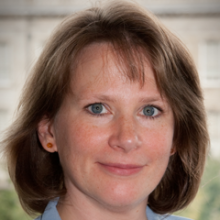
Jennifer Edmond is Director of Strategic Projects in the Faculty of Arts Humanities and Social Sciences at Trinity College Dublin in Ireland. Jennifer holds a PhD in Germanic Languages and Literatures from Yale University, but her current research primarily addresses the conditions of possibility for the development and delivery of research across and between the disciplines. She is Coordinator of the €6.5 M FP7 project CENDARI (Collaborative EuropeaN Digital/Archival Research Infrastructure) and convenes the Working Group in the impact of digital methods on scholarly publication in the ESF-funded network NeDiMAH (Network for Digital Methods in the Arts and Humanities). She has published most recently on cyberinfrastructure for humanities research, strategic considerations for archives in the digital world, and open learning in the ‘cosmopolitan’ internet.
Presentation abstract
There is a multilingual European 'market' for understanding as well as for good and services. In a globalised, postmodern world, scholars and citizens alike are no longer satisfied with simple, national narratives of their history and cultural frames of reference. As the example of the battle of Gallipoli illustrates, our need to understand our globalised world requires ever more powerful tools to support, rather than supplant, expert knowledge in linguistically and materially complex information environments. To respond to this, technology development for the interrogation of complex multilingual content needs to be aware of these requirements, which may diverge significantly from those seen within social media or commercial contexts. This shift will require technological innovation, but also social innovation, enabling and indeed requiring scholars using digital methods to develop a deeper understanding of the tools they may be using, so as to use them appropriately and contribute to improving them. The CENDARI project, a European research infrastructure, has approached this problem from a number of angles, which may provide food for though for the policy, media and technology communities.